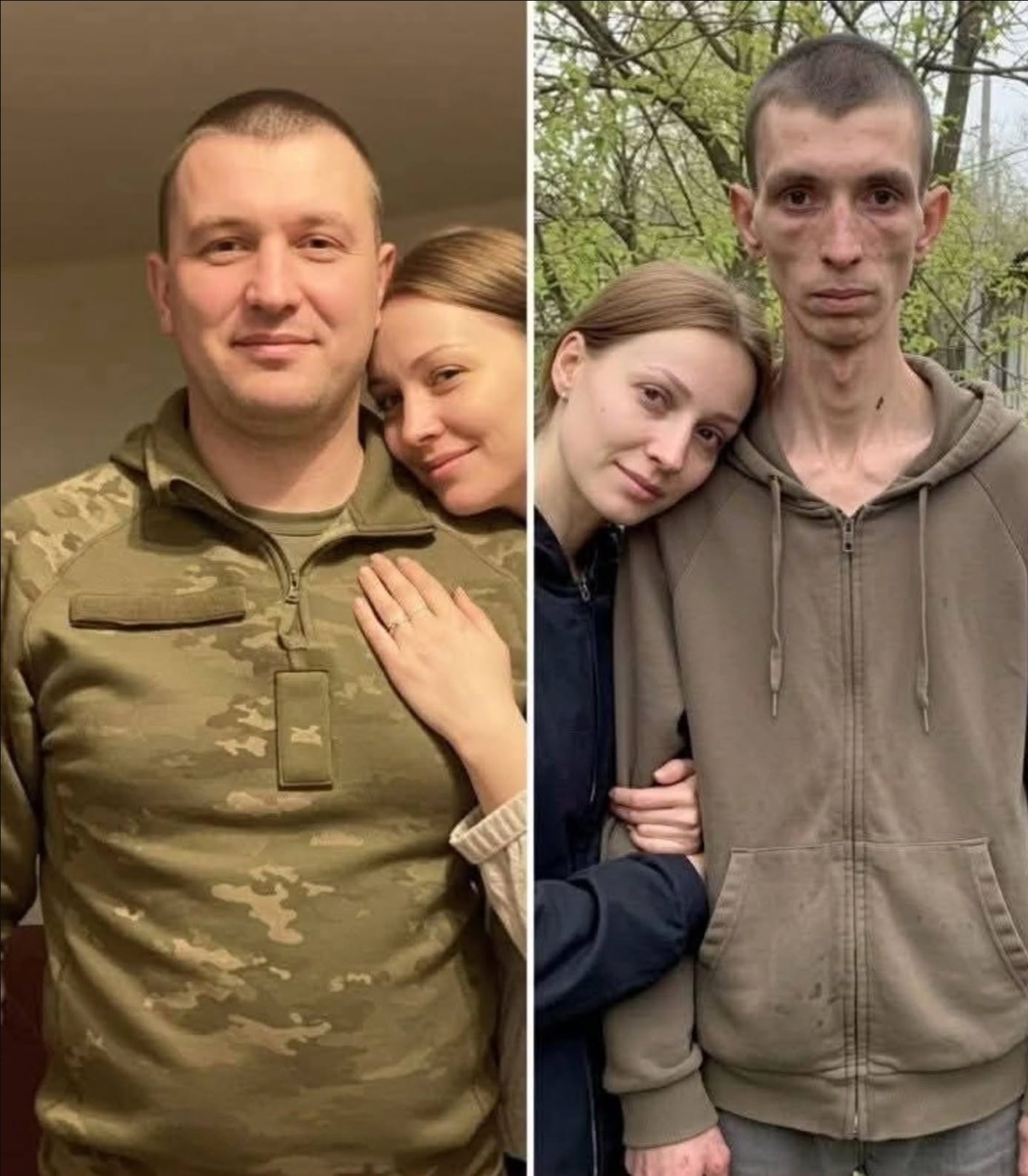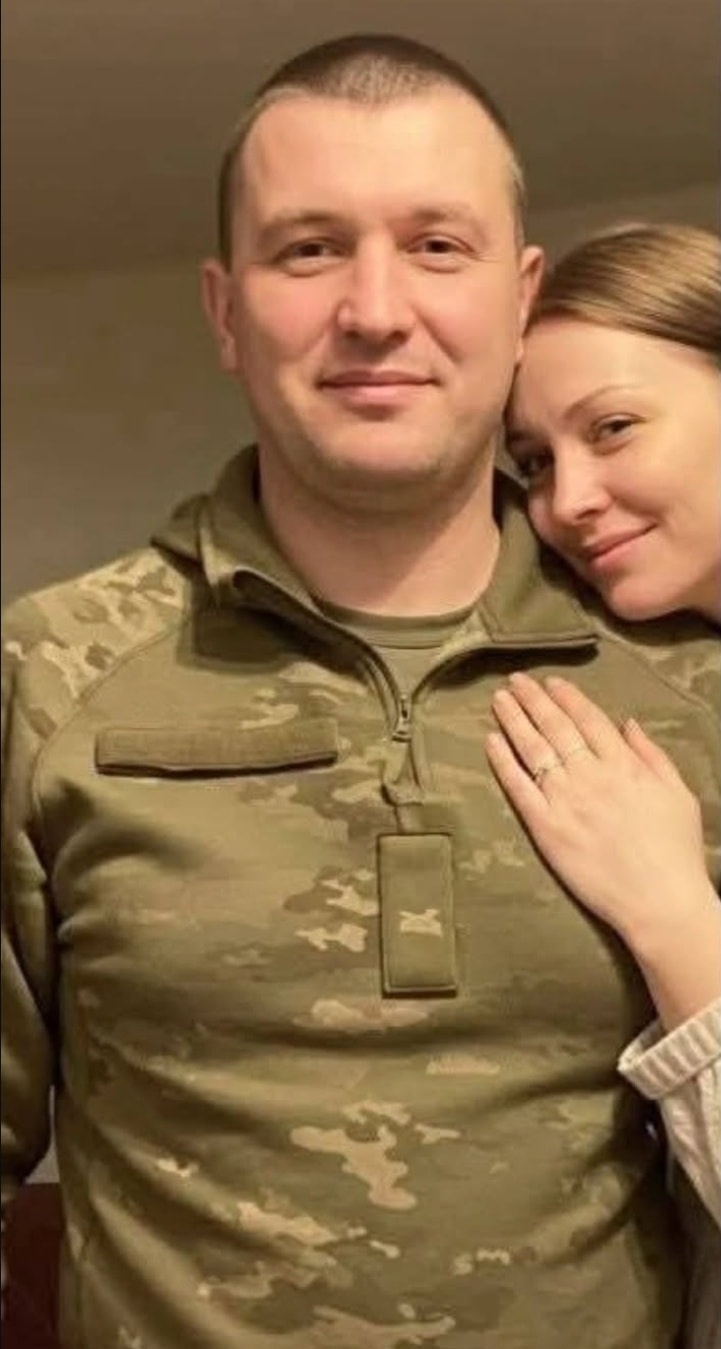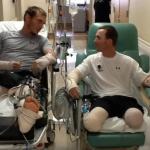When War Follows Home: A Soldier’s Silent Battle After Captivity

On one side of a photograph, life seemed full of promise. A young man in uniform stood tall, his fiancée leaning gently against him. Their faces reflected strength, devotion, and the certainty of a future waiting ahead.
But the other side of the story looked very different. After months in captivity, his once strong frame had withered. His fiancée, who had once radiated vibrancy, now appeared fragile, her energy dimmed by endless worry. Both clung to love, but love had been tested by silence, distance, and fear.

He returned home, yet not fully. What he carried back was invisible, but heavy. “There was no sky there,” he whispered when asked. His days had been filled with endless gray, simple meals without taste, and nameless figures drifting like ghosts. Nights seemed endless, and mornings weighed even more.
“We weren’t counting people,” he said quietly. “We were counting shadows.”
Though his body survived, his spirit was not untouched. At home, ordinary sounds unsettled him. The reflection in the mirror no longer showed the man he once was, but someone altered by memory.

His fiancée tried to reach him—with patience, with touch, with love. But each attempt was met with the same quiet response: “Don’t come in. I haven’t left there yet.”
The battle he faced now was not marked by explosions or gunfire, but by the silence inside his mind. It was a struggle unseen, one that continued long after his return.
For many who come back from conflict, the hardest fight begins after the uniform is folded away. It is a reminder that some wounds are not visible, and some journeys don’t end when the soldier steps back home.








